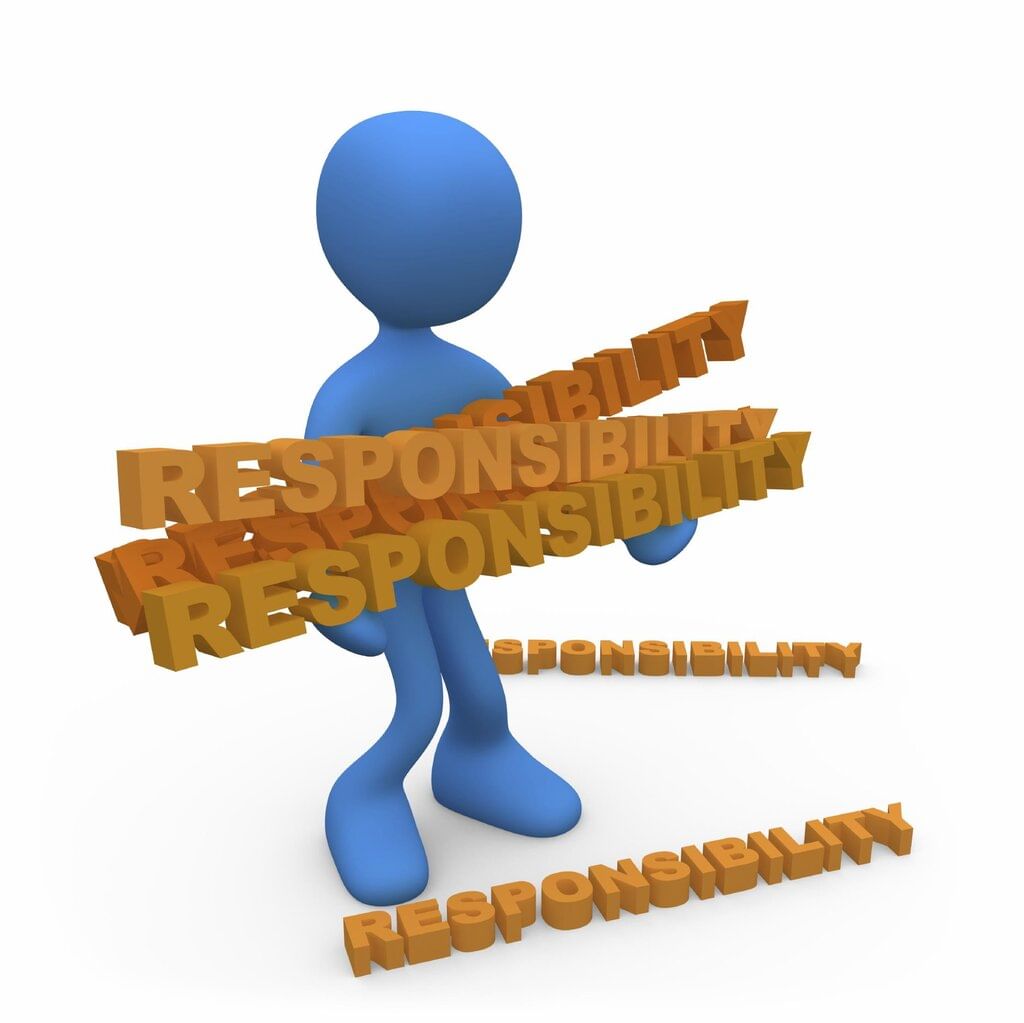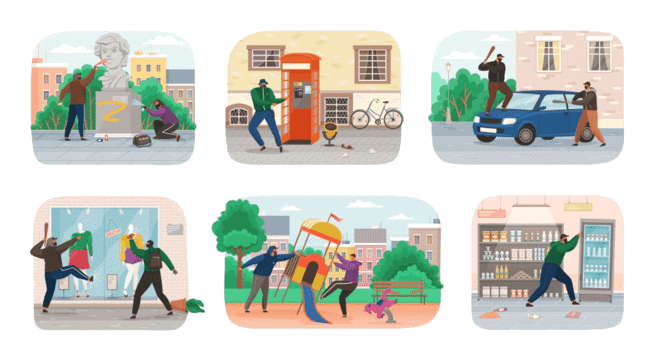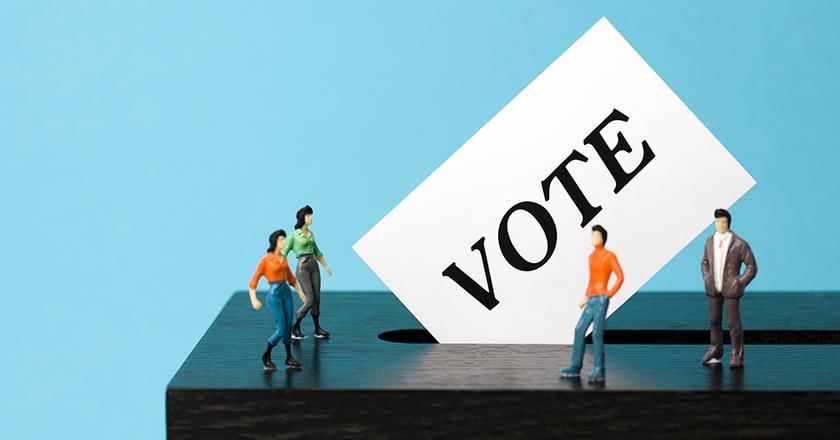Our Responsibilities Chapter Notes | Social Studies Class 4 ICSE PDF Download
Introduction
In this chapter, we learn about the important jobs we have as good children in our country. We must take care of things like roads, parks, and historical places that belong to everyone, called public property. We also need to look after our own things, like our house and clothes, which are called private property. Another big job is to vote in elections when we grow up, to choose good leaders for our country. By doing these things, we become responsible and help our country stay nice and happy.

Taking Care of Public and Private Property

- Some places and things, like roads, bridges, parks, buses, railways, and hospitals, belong to everyone in the country.
- These things are not owned by just one person but are used by all people.
- The government makes these things and takes care of them so everyone can use them.
- These things are called public property because they are for all people.
- Old buildings and special places, like the Taj Mahal, Ajanta Caves, and Sun Temple, show our country’s history.
- These old places are also taken care of by the government for everyone to see and learn about our past.
- These historical places are also public property because they belong to all of us.
- Since everyone can use these places, we all must take care of them and not break or damage them:
- We should follow some rules to keep public property safe and clean.
- We should not spit or throw garbage in public places like parks or roads.
- We should not write or draw on the walls of old buildings or monuments.
- We should not break the seats, windows, or other parts of buses and trains.
- We should not damage street lamps in public areas.
- Things like our house, car, clothes, and notebooks belong only to us.
- No one else can use our things without asking us first.
- Things that belong to one person are called private property.
- We must take care of our own things so they don’t get broken or spoiled.
- We should also be careful not to break or damage other people’s things.
- When someone takes care of both public property and private property, they show they are a good citizen.
- Being a good citizen means having civic sense, which is caring for things around us.
Fun Fact
The Swachh Bharat Abhiyaan is a special plan by the government of India to keep our country clean. This plan started on 2 October 2014 at Rajghat, New Delhi. It works to clean streets, roads, and other important places in our country. Children also help by cleaning roads under this plan.
Participating in Elections

- If everyone in a country does whatever they want, there will be big problems and confusion everywhere.
- The country cannot grow well, and people will face many troubles because of this.
- So, people choose leaders who they think can work to make the country better.
- These leaders come together to form a government that takes care of the country.
- The process of choosing leaders is called an election.
- In India, elections happen every five years to choose new leaders.
- People who vote in elections are called voters.
- All Indian citizens who are 18 years or older can vote in elections.
- Voters go to a polling booth to cast their vote.
- In India, voting is done using a machine called an Electronic Voting Machine (EVM).
- On the EVM, voters press a button next to the name and symbol of the candidate they want to choose.
- Planning an election for a whole country takes a lot of work and preparation.
- In our country, a group called the Election Commission plans and organizes the elections.
- The Election Commission decides the dates for the elections.
- It makes sure the elections happen in a fair and proper way.
- The Election Commission also tells everyone the results of the election.
- All people in India who are 18 or older should vote in elections because it is an important right and duty.
- If we don’t vote, the leader we think is best might not win.
- Voting lets us choose the leader we want for our country.
- Since voting is so important, we should use this right carefully.
- We should not let others tell us who to vote for.
- We should think carefully and vote for the person who will work for the good of the country.
- By voting in elections, we act like responsible citizens of our country.
Understanding the Election Process through a Class Monitor Activity
To help children understand how elections work, a simple and engaging activity can be conducted in the classroom by electing a class monitor. In this activity, the teacher selects or asks for volunteers—usually three or four students—to stand as candidates. These students compete for the position of class monitor. Every student in the class then casts their vote by writing the name of one candidate on a piece of paper, which is known as a ballot paper. This ballot paper is kept secret and dropped into a box on the teacher's table. Once all votes are submitted, a few students count the votes received by each candidate. The student with the highest number of votes is then declared the class monitor by the teacher. This process helps students learn the value of voting, secrecy in elections, and fair counting, all of which are important parts of real elections.
Points To Remember
- Things that belong to everyone and are taken care of by the government are called public property.
- Things that belong to one person are called private property.
- We must take care of both public and private property to be good citizens.
- Elections are the process of choosing leaders, and people 18 or older can vote.
- All Indian citizens who are 18 or older should vote in elections to choose good leaders.
- As responsible citizens, we must vote whenever there is an election.
Glossary
- Appreciate: To respect and admire something.
- Scribbling: Writing or drawing in a careless way.
- Campaign: Working hard for a cause, like cleaning the country.
- Infrastructure: Important things like roads and bridges.
- Chaos: A lot of confusion and unrest.
- Welfare: The well-being and happiness of people.
|
43 docs|16 tests
|
FAQs on Our Responsibilities Chapter Notes - Social Studies Class 4 ICSE
| 1. What are the responsibilities of individuals in taking care of public property? |  |
| 2. Why is it important to participate in elections? |  |
| 3. How can I help protect private property in my neighborhood? |  |
| 4. What should I do if I see someone damaging public property? |  |
| 5. How does participating in elections impact my community? |  |
















